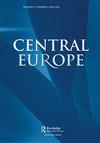身体、地点与知识:1800年前后游记与专家反思中的波兰主义
IF 0.1
2区 历史学
Q2 HISTORY
引用次数: 0
摘要
自1600年左右以来,头发打结被认为是一种医学疾病,并被命名为Plica polonica,在18世纪前往波兰土地的作家的著作中或专家对这些省份的看法中都很突出。本文认为,对所谓地方性医疗状况的综合观察与新兴的关于东欧的论述密切相关,东欧是欧洲大陆的一个本质上不同的部分,也是殖民努力的对象。它表明,游记和专家的观点相互汲取灵感、观察和假设,这是迄今为止人们对东欧文字相互影响的部分理解,为了解启蒙时代专家文化的发展提供了重要的见解。本文章由计算机程序翻译,如有差异,请以英文原文为准。
Body, Place, and Knowledge: The Plica polonica in Travelogues and Experts’ Reflections around 1800
ABSTRACT The matting of hair, understood as a medical condition since around 1600 and named Plica polonica, appears prominently in the writings of eighteenth-century authors travelling to Polish lands or in experts’ opinions about these provinces. This paper argues that integrating observations about an allegedly endemic medical condition was intimately linked to the emerging discourse on eastern Europe as an essentially different part of the continent, and an object of colonizing efforts. It demonstrates that travelogues and experts’ opinions were drawing inspiration, observations, and assumptions from each other, a hitherto only partially understood instance of cross-fertilizing writing on eastern Europe, offering important insights into the development of experts’ culture in the Age of Enlightenment.
求助全文
通过发布文献求助,成功后即可免费获取论文全文。
去求助
来源期刊

Central Europe
HISTORY-
CiteScore
0.20
自引率
0.00%
发文量
7
期刊介绍:
Central Europe publishes original research articles on the history, languages, literature, political culture, music, arts and society of those lands once part of the Habsburg Monarchy and Poland-Lithuania from the Middle Ages to the present. It also publishes discussion papers, marginalia, book, archive, exhibition, music and film reviews. Central Europe has been established as a refereed journal to foster the worldwide study of the area and to provide a forum for the academic discussion of Central European life and institutions. From time to time an issue will be devoted to a particular theme, based on a selection of papers presented at an international conference or seminar series.
 求助内容:
求助内容: 应助结果提醒方式:
应助结果提醒方式:


